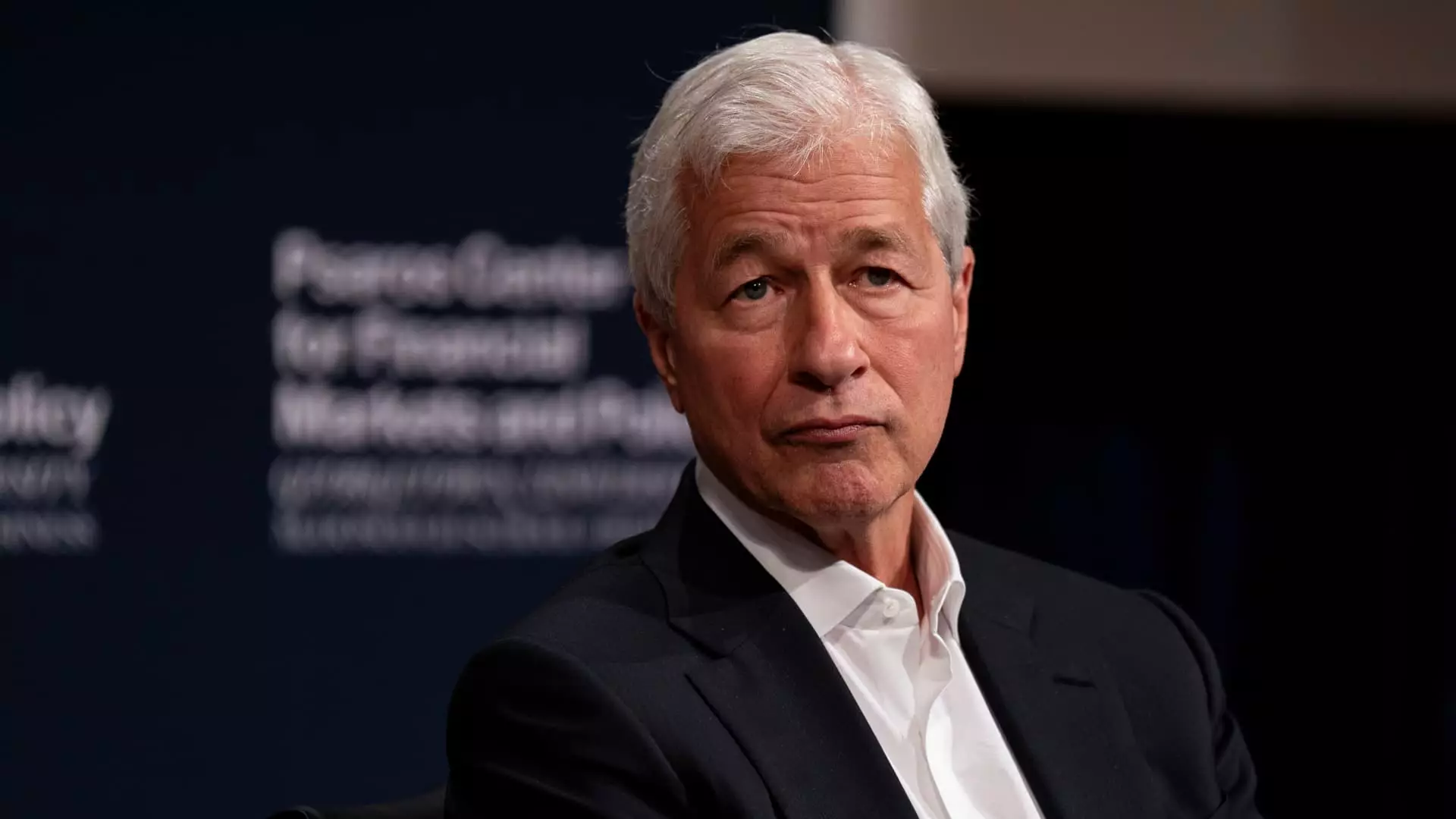The discourse surrounding tariffs has never been devoid of controversy, particularly when viewed through the lens of global economic relations. As U.S. President Donald Trump revisits the idea of imposing tariffs on key trading partners, industry leaders like Jamie Dimon, CEO of JPMorgan Chase, have entered the fray with insights that complicate the narrative. Dimon’s recent comments suggest that tariffs, when strategically employed, can serve as protective measures for American interests, emphasizing that minor inflationary pressures may be overlooked in the pursuit of national security. This position, articulated during an interview at the World Economic Forum, offers a fresh perspective on the potential utility of tariffs beyond their immediate economic implications.
Dimon articulated a view that resonates with a certain segment of the business community, suggesting that tariffs could catalyze negotiations and lead to more favorable trade agreements. However, this optimism is tempered by the looming risk of a global trade war that could inadvertently destabilize markets. For instance, Trump’s approach to tariffs has included a wide-ranging threat to impose levies on imports from not only China but also Canada and Mexico, which are traditionally viewed as close trading allies. The $214 billion trade deficit with the European Union raises questions about the long-term sustainability of such an aggressive stance, especially given the dire consequences a trade war can have for both American consumers and overseas partners.
One notable point from Dimon’s perspective is his acceptance of inflation as a potential byproduct of tariff implementation. The assertion that “national security trumps a little bit more inflation” reflects a strategic mindset: prioritizing America’s safety over immediate economic comfort. Dimon’s remarks suggest a willingness to engage with the complexities of inflation in a manner that many in the financial sector may find divisive. Historically, broad-based tariffs instituted during previous administrations did not coincide with significantly rising inflation rates, but the unpredictability of foreign markets makes future outcomes uncertain. Thus, the question arises: can the necessary trade-offs be justified in the name of national interest?
Interestingly, Dimon is not alone in his tempered enthusiasm for tariffs. David Solomon, CEO of Goldman Sachs, also expressed a cautiously optimistic message deriving from the potential rebalancing of trade agreements that may foster U.S. economic growth. This notion of rebalancing suggests a strategic pivot towards negotiating better trade terms, rather than merely imposing punitive measures. Both leaders highlight the importance of thoughtful execution, emphasizing that hastily implemented tariffs may neglect the broader economic impacts, ranging from inflation to currency fluctuations. The consensus emerging from such discussions highlights that the successful navigation of trade dynamics demands a nuanced approach focused on long-term objectives rather than immediate gains.
As the possibility of tariffs looms larger in U.S. economic policy, understanding their multifaceted implications on both the national and global scale is crucial. While Dimon and Solomon exhibit faith in the potential benefits, the general sentiment within the market reflects caution. A fundamental ambivalence exists: while there is recognition that tariffs can serve as effective economic tools, there is also a profound awareness of the peril they pose if poorly managed. A careful balance will be vital to ensure that these policies foster sustainable economic growth without triggering adverse consequences.
The landscape of tariffs remains fraught with ambiguity and opportunity. Significant figures in finance, advocating for a measured approach, convey that while tariffs can indeed be weapons in the economic arsenal, their wielding must be characterized by strategic foresight and an understanding of broader repercussions. As global markets evolve, understanding how to navigate this tension will be essential for policymakers and business leaders alike, shaping the complex dialogue around trade and economic security in the years to come.

